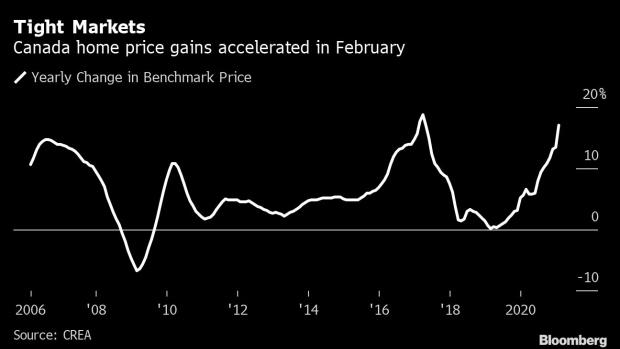
Asian Shares to Be Pressured, Chipmakers in Focus: Markets Wrap
Stock futures pared gains as traders weighed the latest economic data for clues on the Federal Reserve’s next steps.
Latest Videos
The information you requested is not available at this time, please check back again soon.

Stock futures pared gains as traders weighed the latest economic data for clues on the Federal Reserve’s next steps.

Blackstone Inc. collected more fees from big retail funds and credit strategies during the first quarter, compensating for the slower pace of deal exits.

Persistent inflation risks and hawkish signals from the US Federal Reserve are preventing the Czech central bank from accelerating its interest-rate cuts, according to board member Jan Prochazka.
Ken Griffin’s Citadel and Citadel Securities will move their London base to a new office tower on the edge of the City of London, a major expansion of their space in the latest sign of the firm’s growing heft.

Solving a longstanding construction worker shortage will be key to boosting housing supply, experts say, as Canada's national housing agency continues to forecast housing start levels that fall short of growing demand.
Apr 8, 2021
, Bloomberg News

(Bloomberg) -- Canada’s bank regulator is proposing to tighten mortgage qualification rules to make it more difficult for home buyers to secure financing, a move aimed at easing financial stability risks stemming from a booming real estate market.
The Office of the Superintendent of Financial Institutions said it will set up a new benchmark interest rate used to determine whether people will qualify for an uninsured mortgage to a minimum rate of 5.25%. The current threshold, based on posted rates of the country’s six largest lenders, is at 4.79%.
“Sound residential mortgage underwriting is always important for the safety and stability of financial institutions,” Jeremy Rudin, head of the Ottawa-based agency, said in a statement. “Today it is more important than ever.”
The move comes amid a surge in housing prices that’s raising concern among policy makers and economists. Cheap mortgages and new remote-working conditions have spurred a frenzy of demand for more spacious homes, with house hunters bidding up prices across the country.
The Canadian Real Estate Association calculates prices are up 17% nationally over the past 12 months. Twelve major markets -- or about one quarter of the total -- have posted price gains of more than 30%.
OSFI said housing market conditions “have the potential to put lenders at increased financial risk,” forcing regulators to take “proactive action.” The regulator said it will revisit the calibration of the qualifying rate at least once a year to ensure it remains appropriate. The plan is to implement the changes on June 1, after consultations.
The move impacts the uninsured mortgage space that is overseen by OSFI. The federal government is in charge of mortgage qualification for insured mortgages. There was no indication in the statement that the government planned to follow the move, and requests for comment from the finance department weren’t immediately returned.
One unintended consequence could be to temporarily accelerate the market as buyers rush in before the changes are implemented.
“We may well see an even hotter spring housing market as a consequence to OSFI’s move,” Derek Holt, an economist at Bank of Nova Scotia, said by email. “We’ll get more pulled-forward demand.”
©2021 Bloomberg L.P.